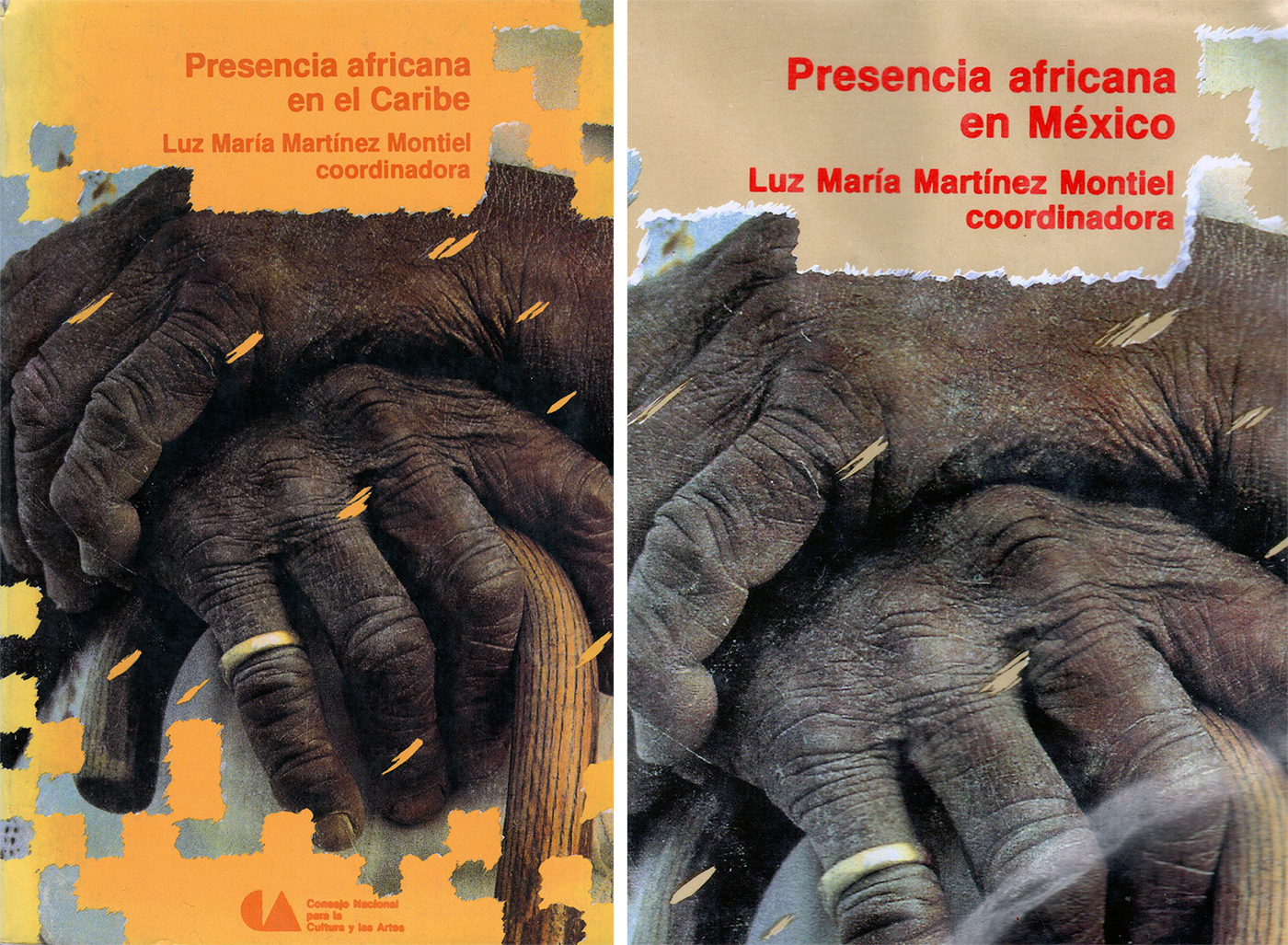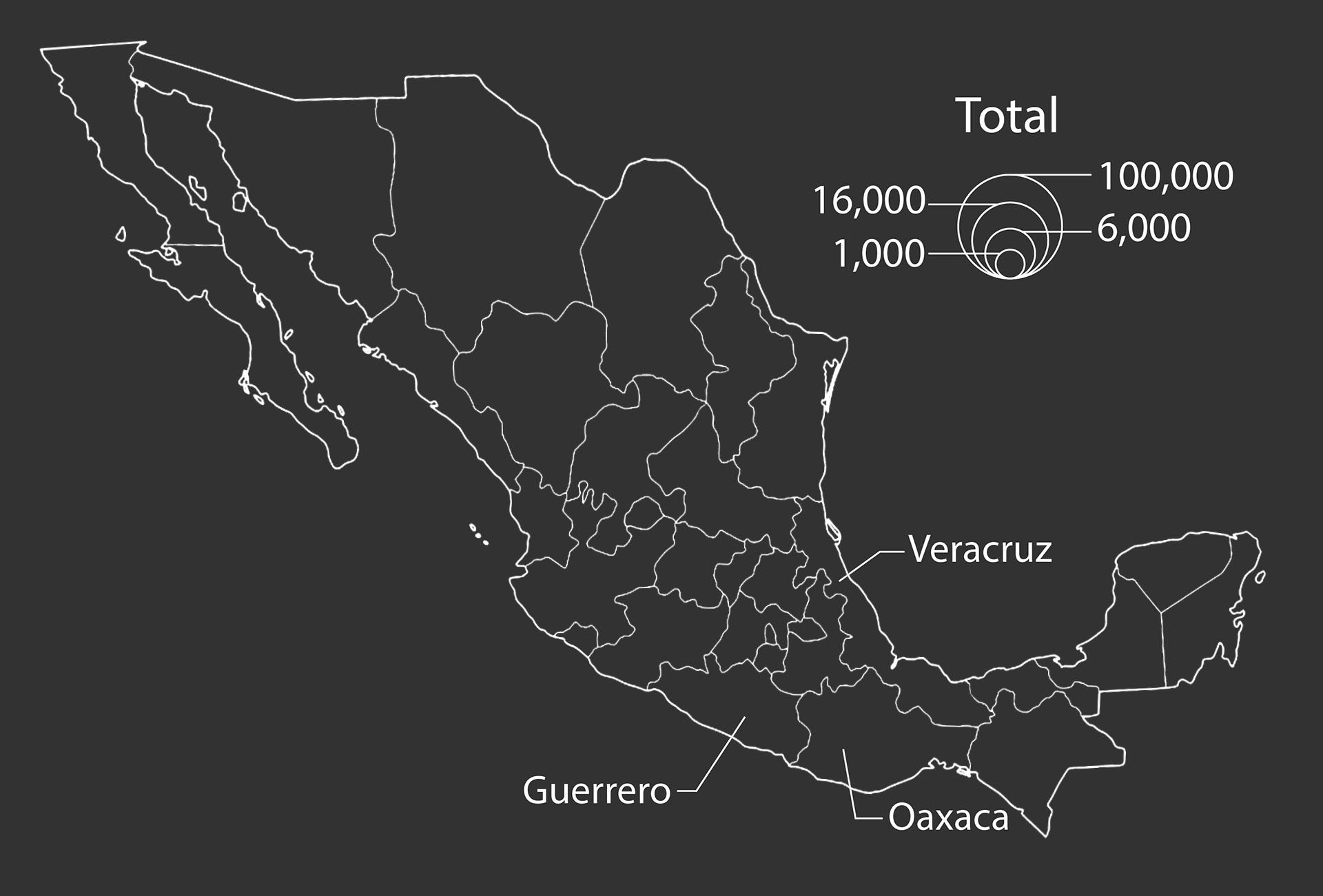

Countless studies and research has taken place since mid-20th century regarding African and Afrodescendant populations in Mexico, past and present. These studies give testimony to their economic, social and cultural importance.

Historical and anthropological research from the mid-20th century started to make public the importance and the contributions of thousands of Africans and Afrodescendants in Mexico. In addition to the important role Africans and Afrodescendants played in the economic, social and cultural life of the Vice-Royalty, there is documentation proving their relevance in the insurgent movement and the creation of the State-Nation. More recent studies have focused on the current situation lived by the Afrodescentants and their communities. The studies show issues such as marginalization and poverty, gender violence suffered by women along problems generated by discrimination and racism. Even though the amount of studies has risen, there is still work to be done concerning past and present topics in order to understand the experiences and problems that the Afrodescendant community has faced in various regions of Mexico. It is also necessary to analyze and research the experiences lived by Afrodescendants that, in the 19th and 20th century emigrated to Mexico, plus the ones that continue to arrive from countries like Haiti, Cuba, Honduras, Cameroon and Angola, among other countries. Furthermore, from the mid 90’s, academic and cultural actions have been promoted in an effort to highlight the contributions of Africans and Afrodescendants to our Nation’s foundation and also to present their current living conditions. This has been done precisely due to the silence and indifference that overshadows their role in the past and present of Mexico.
Gonzálo Aguirre Beltrán, historian and anthropologist from Veracruz, was a pioneer in the research concerning populations of African origin in Mexico. He brought light to their origins, cultures, the characteristics of the slave trade and the demographic data concerning African relevance in the history of Mexico.
The doctor and anthropologist, Gonzalo Aguirre Beltrán, was one of the pioneers in the historical and anthropological research on the topic of black or Afrodescendant populations in Mexico. In 1946 he published La Población Negra de México 1519-1819, there he presented demographic data regarding the African and Afrodescendant community in our country. The data encompassed their origins, the characteristics of the slave trade from the African continent and of slavery in the New Spain as well as their role in the economic activities of the Vice-Royalty. Aguirre Beltrán used his work to shine a light to the cohabitation and exchange between Africans and Indigenous people. In later years, in his book Cuijla, esbozo etnográfico de un pueblo negro, he did ethnographic research about the population of Cuajinicuilapa in the Costa Chica of Guerrero; there, he narrated the people’s history focusing in the cultural elements that distinguished them and that could’ve come from Africa.

Digital resources: Presencia africana en el Caribe · Presencia africana en México
The program, “Nuestra Tercera Raíz,” directed by the Office of Popular Cultures in the once existing National Council for Arts and Culture was critical for carrying out research and promotion about the importance of the Africans and Afrodescendants in Mexico.
In the 90’s, the national program“Nuestra Tercera Raíz” was founded by the National Office of Popular Cultures of the National Council for Arts and Culture. Promoted by anthropologist Guillermo Bonfil Batalla, the program was coordinated by Luz María Martínez Montiel. She took up the task of annally organizing Afro-mexicanistas gatherings with the purpose of creating a space for the collection of studies on the subject and sharing of experiences during research. This program was also dedicated to create expositions and festivals that were decisive in raising awareness and promoting the importance of Afrodescendant populations in Mexican culture. As part of the body of work that resulted from these gatherings, Luz María coordinated and published in 1992 a compilations of articles from many researchers which was titled La presencia africana en México. During her term as director of the program, she coordinated another 3 books on the subject of African presence in Central America, South America and the Caribbean. The term “third root” became important at the time as means to raise awareness about the African populations as part of the roots of Mexican culture. Nevertheless, nowadays, this term has lost validity since it has been proven that Africans and Afrodescendants were the second and sometimes, in certain regions, the first most relevant group in the Vice-Regal society.
Afromexican social organizations have been fundamental in the process to make the Afrodescendant communities visible. Among their demands, they petitioned to be recognized in the Federal and State constitutions as communities and populations with their own characteristics. Since 1997, in the town of El Ciruelo, Oaxaca, the Gathering of Black Communities has been taking place. It works as a space for the Afromexican communities of the region to gather, exchange stories and talk about the problems they face. Scholars and representatives of various governmental institutions used to assist to these gatherings to listen and give support to their demands. To this date 21 gatherings have taken place, the last ones took place in Veracruz, Múzquiz, Coahuila and Mexico City. The objective is to become a national movement. Other groups and associations have also contributed by raising their voices, exposing the precarious economic conditions that most of these communities experience and by searching for projects that will strengthen the agency of said populations. It is important to mentions that in recent years groups lead by women have been created bringing to light the severe issues they suffer concerning gender violence. They demand public policies that will support them on this subject as well as actions actions to eradicate discrimination and racism. There is no doubt that the organized civil society has been decisive in raising awareness about the contributions to Mexico done by Afrodescendants; the eradication of racist ideas that lurk in the country through the promotions of human rights; the new sense of awareness the communities have for their history and the positive spread of their cultural expressions and cultural heritage.
PEOPLE WHO RECOGNIZE THEMSELVES AFROMEXICAN, BLACK OR AFRO DESCENDANT





Concentration per 100 thousand inhabitants
(click the buttons)

Digital resource: Censo de Población y Vivienda 2020
The National Census of Population and Housing 2020 showed that around 2 million 600 thousand people recognizes themselves as Afromexican, Black or Afrodescendant in spite of the silence and underestimation that has been held about their role in the past and present of Mexico.
Aside from the demands made by the Afromexican movement and the historical and anthropological research, many national and international contexts have made possible the constitutional recognition of the Afrodescendant populations in 2019. These efforts also made possible the inclusion of a question about self-identification as Afromexican or Afrodescendant in the Inter-Census Survey of 2015 and in the National Census of Population and Housing 2020. In 1994, unesco, by Haitian and African countries initiative, created an international project: The Slave Route. The purpose of the project is to break the silence about the importance that the African diaspora and the Afrodescendant contributions have had in almost all the countries in the world. One of the first remarkable actions was the World Conference against Racism, Racial Discrimination, Xenophobia and Related Intolerance, which took place in Durban, South Africa in 2001. There they remarked on the relevance and the contributions of Afrodescendant populations around the world as well as highlighted the process of transatlantic enslavement as a crime against humanity. In 2011, the un declared the International Year for People of African Descent to which some governmental institutions joined in. The International Decade for People of African Descent 2015-2024 summoned the un member states to take actions and create activities that benefit the Afrodescendants and their communities, particularly the women and youth. In Mexico, various political actions have taken place in the last years to favor these populations. In Oaxaca, Guerrero and Mexico city, their State Constitutions recognized the Afrodescendant populations and, finally in 2019, the National Constitution of Mexico recognized these communities section C, Article 2. Since 2015, a new question regarding self-identification as Afromexican was added to the Inter-Census Survey and, in the 2020 Census, a question regarding Afromexican, Black and Afrodescendant populations was also added. Although there is still much to do so that the rights of the Afromexican people and their communities are fully recognized, these measures have been vital to make public their contributions, concerns, and the need to eradicate discrimination and racism.
